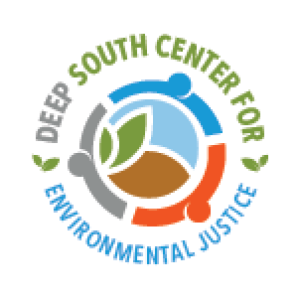
Dr. Beverly Wright joins Frontline Community Leaders for United Nations Global Plastics Treaty Negotiations
Nov 17, 2023
November 17, 2023Contact: DeepSouth@skdknick.com
Dr. Beverly Wright joins Frontline Community Leaders for United Nations Global Plastics Treaty Negotiations
Beyond Petrochemicals Hosts Environmental Justice Delegation at Global Plastics Treaty Negotiations in Nairobi (INC-3)
Nairobi, Kenya - As part of the Beyond Petrochemicals Campaign, Dr. Beverly Wright, founder and executive director of the Deep South Center for Environmental Justice, joined local leaders and community advocates from Texas, Louisiana, and the Ohio River Valley in Nairobi, Kenya this week to participate in the third session of the United Nations global plastics treaty process (INC – 3).
The delegation aims to elevate the invaluable role and experiences of frontline communities in the negotiation process. The communities included know firsthand the harm caused by the petrochemical industry and will provide an important perspective to the treaty process.
“The Mississippi River Chemical Corridor, or Cancer Alley produces one-fifth of the United States' petrochemicals, and generations of Black and brown families have been exposed to these deadly chemicals due to the unchecked pollution of these neighboring industrial plants,” said Dr. Beverly Wright, founder and executive director of the Deep South Center for Environmental Justice. “Cancer Alley facilities remain Louisiana’s top pollution producers, and these negotiations are a bold step in the right direction to ensure all families can live and thrive in a healthy and pollution-free environment.”
“Those closest to the problem are usually the ones that have the solutions,” said Heather McTeer Toney, Executive Director of Beyond Petrochemicals. “We are honored to support these leaders and the work they are doing to protect the air, water and health of the places they call home.”
Petrochemicals are the building block for plastic production and account for 10 percent of global GHG emissions, which if left unchecked, will increase by 20 percent by 2030. Plastic pollution is both a global and a local issue. Communities in Louisiana’s Cancer Alley live with a 95 percent higher cancer risk than the rest of the country. Petrochemical facilities use and emit toxic chemicals linked to not only cancer but other health problems like respiratory and cardiac illnesses, which disproportionately affect people of color and low-income communities.
###
ABOUT THE DEEP SOUTH CENTER FOR ENVIRONMENTAL JUSTICE
The Deep South Center for Environmental Justice provides opportunities for communities, scientific researchers, and decision-makers to collaborate on projects that promote the rights of all people to be free from environmental harm as it impacts health, jobs, housing, education, and general quality of life. A major goal of the Center continues to be the development of leaders in communities of color along the Mississippi River Chemical Corridor and the broader Gulf Coast Region that are disproportionately harmed by pollution and vulnerable to climate change. For more information, visit https://www.dscej.org.